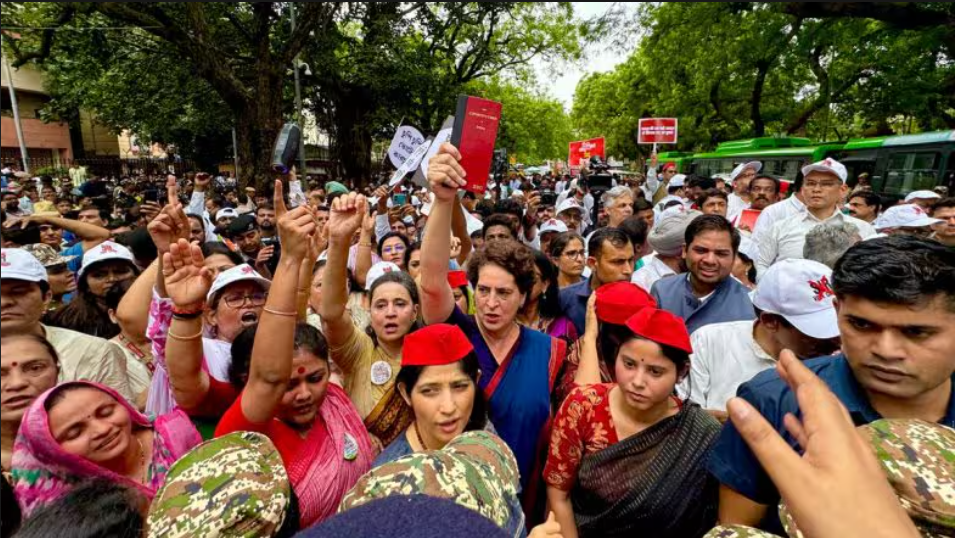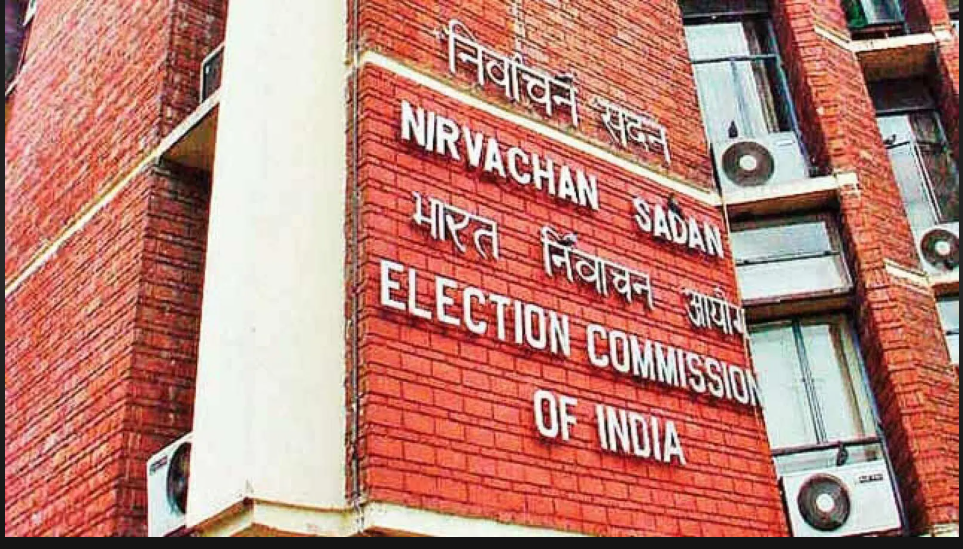EC Says Opposition’s Bulk Objections to Bihar Voter Roll Revision Not Valid Under Procedure
The Election Commission of India (EC) has defended its handling of Bihar’s special intensive revision (SIR) of electoral rolls, rejecting allegations from the opposition INDIA bloc that it ignored their objections. The EC clarified that the submissions from opposition parties were sent in bulk rather than individually, which violated the prescribed “claims and objections” procedure.
According to a Times of India report, the EC has stated that such bulk submissions could not be processed as formal objections and are instead being treated as general complaints — which are now under verification.
Background of the Controversy
The dispute began after the publication of Bihar’s draft voter roll on August 1, when the EC announced that no recognised national or state party had filed formal claims or objections in the 11 days since. However, it confirmed receiving 13,970 individual submissions from electors, out of which 341 had already been addressed.
The INDIA bloc — comprising RJD, Congress, CPI-ML, and other opposition parties — accused the EC of “doing politics” and creating a “false narrative” that no party had raised concerns. They argued that the real issue was not the SIR itself but the way it was conducted, citing alleged large-scale voter deletions, missing documents, and removal of voters residing outside Bihar.
Opposition Allegations
Tejashwi Pratap Yadav, Leader of the Opposition in the Bihar Assembly, alleged that the voter list revision was politically motivated. He accused the BJP of using the EC to achieve “what it has failed to do itself” and claimed that the EC ignored Supreme Court guidance. He also pointed to the case of Deputy Chief Minister Vijay Kumar Sinha allegedly holding two voter IDs.
Shakeel Ahmad Khan, Congress legislature party leader, said that “an uncountable number” of objections had been sent but were “denied” by the EC. He added that Rahul Gandhi’s request to meet EC officials with proof of alleged “vote theft” was declined.
RJD spokesperson Chitranjan Gagan said the opposition had requested a category-wise list of voters marked as dead, shifted, or duplicated but never received it, making it impossible to file objections in the required format.
Kunal, CPI-ML state secretary, claimed that hundreds of objections were filed through booth-level and local committees. He cited one example in the Jale Assembly constituency, where 63 names were allegedly deleted. He accused the EC of “trying to set a narrative” that the voter rolls were flawless.

EC’s Response
An EC official defended the commission’s decision, explaining that the opposition’s submissions did not meet the format requirements. “They were not supposed to send claims/objections in bulk but one by one. So they were not entertained,” the official told TOI.
However, the EC added that these bulk submissions are still being reviewed as general complaints to check their validity. This process, the official noted, is separate from the formal claims and objections procedure outlined for voter roll revisions.
What the Law Says
Under the Representation of the People Act and EC guidelines, claims and objections to voter rolls must be filed individually with specific supporting documents. This allows election officials to investigate and verify each case on merit. Bulk submissions, the EC argues, make it impossible to verify claims properly within the stipulated time frame.
The special intensive revision is a critical part of the electoral process, ensuring that rolls are updated before elections. Bihar’s revision comes ahead of crucial political contests, making the integrity of the voter list a high-stakes issue.
Political Implications
The clash between the EC and opposition parties comes at a politically sensitive time, with Bihar being a key battleground state. Opposition leaders allege that targeted deletions are designed to weaken their vote base, while the EC insists that it is following procedure without bias.
Political analysts warn that such disputes can erode public trust in the electoral process, especially when voter roll revisions are perceived as lacking transparency. The handling of the opposition’s objections may also influence voter perceptions ahead of the next polls.
What’s Next?
While the EC continues verifying the bulk complaints, the opposition is expected to step up its campaign, possibly taking the matter to court or to the Election Commission headquarters in New Delhi. If the verification process confirms irregularities, it could lead to corrections in the final electoral roll — but if not, the opposition may face an uphill battle convincing voters of alleged foul play.
For now, the EC maintains that procedural compliance is non-negotiable, and any objections outside the prescribed format cannot be officially entertained as part of the voter roll revision process.
